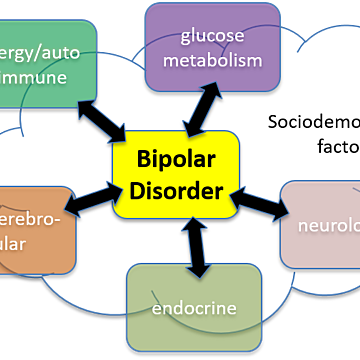Research Project

Kerrie Pierce
Current Appointments
Senior Research AssistantKey Research Areas
Kerrie has been working in the fields of biochemistry, molecular genetics, neuroscience and mental health genetics for almost 40 years. She completed her honours degree at the Australian National University in 1984 and then worked in the then Human Genetics Department at John Curtin School of Medical Research under Professor Philip Board for several years. Kerrie then moved to the Garvan Institute of Medical Research in 1990, working under Professors John Shine and Peter Schofield, before transferring to NeuRA with Professor Schofield's research team in 2006.
Kerrie has experience in a diverse range of molecular techniques that she has applied to various projects, including the study of g-protein coupled and ligand-gated ion channel classes of cell surface receptors, and more recently on projects in the field of mental health genetics with various collaborators within NeuRA, UNSW and beyond. Kerrie is also experienced in laboratory management, and spent several years managing the operations of the Biobanking facility, Genetic Repositories Australia (GRA), which was hosted at NeuRA until 2018.
Kerrie is currently working in Associate Professor Jan Fullerton's team focusing on the environmental and genetic aspects of bipolar disorder.
Publications
2022, 03 Aug
Epigenetic signatures relating to disease-associated genotypic burden in familial risk of bipolar disorder
View full journal-article on https://doi.org/10.1038/s41398-022-02079-6
2021, 17 Mar
A linkage and exome study of multiplex families with bipolar disorder implicates rare coding variants of ANK3 and additional rare alleles at 10q11-q21.
View full journal-article on https://doi.org/10.1503/jpn.200083
2021, 28 Jan
Cortical mediation of relationships between dopamine receptor D2 and cognition is absent in youth at risk of bipolar disorder.
View full journal-article on https://doi.org/10.1016/j.pscychresns.2021.111258
2018, 26 Dec
Comprehensive cross-disorder analyses of CNTNAP2 suggest it is unlikely to be a primary risk gene for psychiatric disorders
View full journal-article on https://doi.org/10.1371/journal.pgen.1007535
2018, 06 Jul
Comprehensive cross-disorder analyses of CNTNAP2 suggest it is unlikely to be a primary risk gene for psychiatric disorders
View full other on https://doi.org/10.1101/363846
2018, 13 Mar
An examination of multiple classes of rare variants in extended families with bipolar disorder
View full journal-article on https://doi.org/10.1038/s41398-018-0113-y
2017
Vulnerability of white matter tracts and cognition to the SOD2 polymorphism: A preliminary study of antioxidant defense genes in brain aging
View full journal-article on http://www.scopus.com/inward/record.url?eid=2-s2.0-85018952956&partnerID=MN8TOARS
2016
BDNF genotype interacts with motor function to influence rehabilitation responsiveness poststroke
View full journal-article on http://www.scopus.com/inward/record.url?eid=2-s2.0-84973545271&partnerID=MN8TOARS
2016
Neuromarkers of the common angiotensinogen polymorphism in healthy older adults: A comprehensive assessment of white matter integrity and cognition
View full journal-article on http://www.scopus.com/inward/record.url?eid=2-s2.0-84941299793&partnerID=MN8TOARS
2015
Genetic markers of cholesterol transport and gray matter diffusion: a preliminary study of the CETP I405V polymorphism
View full journal-article on http://www.scopus.com/inward/record.url?eid=2-s2.0-84945447846&partnerID=MN8TOARS
